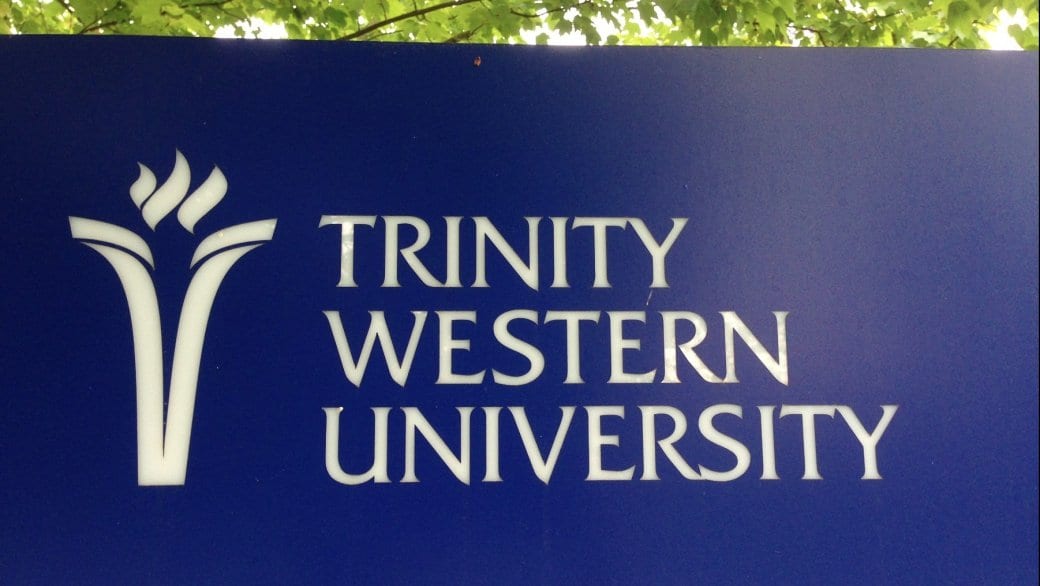Ensuring equal access to the legal profession trumps religious freedom, Ontario’s court of appeal ruled June 29, 2016, in the latest in the Trinity Western University saga.
TWU sued the Ontario law society after lawyers there rejected the Christian university’s future law school grads in 2014.
The lawyers objected to TWU’s covenant that prohibits sex outside heterosexual marriage. They say the covenant effectively bars LGBT students.
TWU disagrees, though its lawyers also argued in BC court that any exclusion that may result from the covenant wouldn’t count as discrimination anyway because the covenant is part of the fabric that holds the school’s Christian community together.
Ontario’s court of appeal disagreed.
“I have no hesitation saying that TWU’s admission policy, viewed in conjunction with the Community Covenant, discriminates against the LGBTQ community on the basis of sexual orientation,” James MacPherson writes in the unanimous decision of three judges.
TWU says it will appeal to the Supreme Court of Canada.
The crux of the case is a balancing of rights — those of evangelical Christians seeking a law school reflecting their beliefs versus equal access to law school for those who might not attend the school due to its religious requirements.
“The balancing of these two constructs necessarily involved the collision of TWU’s religious freedom and respect for LGBTQ equality rights,” MacPherson found.
The Ontario court of appeal agreed that the law society’s rejection of TWU’s future law grads would infringe on the grads’ religious freedom. But, the judges ruled, that infringement is justified here.
The law society is entitled to promote a diverse profession with quality lawyers, the court ruled. “Quality is based on merit, and merit excludes discriminatory classifications.”
MacPherson called the TWU covenant “deeply discriminatory to the LGBTQ community.”
“The consequence is that LGBTQ students are discriminated against in terms of admission to, and life at, TWU,” he ruled.
The executive director of TWU’s future law school says the university is disappointed with the ruling.
“The court correctly found an infringement of TWU’s rights,” Earl Phillips says in statement. “However, we are most disappointed that the court found the infringement to be justifiable. That finding is a serious limitation to freedom of conscience and religion under the Charter of Rights and Freedoms.”
Out On Bay Street director Paul Saguil applauds the Ontario appeal court’s decision.
He says the ruling finds an “appropriate balance between religious freedom and right to equal treatment and access, particularly to public benefits such as legal education and the justice system.”
“We are very pleased with the outcome, and the timing of the decision, as Canada celebrates Pride month,” Saguil says.
Paul Schabas from the Ontario law society also applauds the decision, and the court’s finding that the law society has “the desirable goal of promoting a diverse profession.”
“We are pleased that the court recognized the law society’s role in preventing and removing discriminatory barriers to access to the legal profession,” Schabas says.
TWU is still waiting for appeal decisions in BC and Nova Scotia. The cases are all widely expected to end up in the Supreme Court of Canada, with the Ontario case now leading the way.

 Why you can trust Xtra
Why you can trust Xtra


